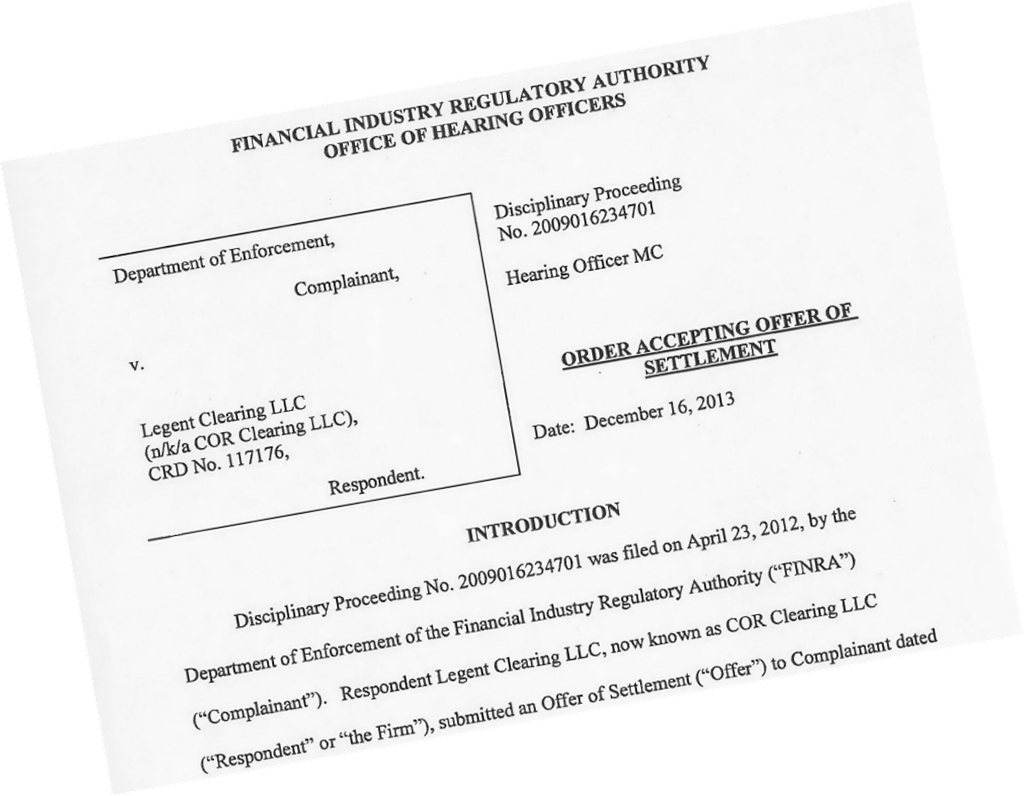For Small BDs And Clearing Firms, FINRA Legal Action Serves As a Cautionary Tale On Anti-Money-Laundering Compliance Hot
FINRA asserted that Omaha-based COR Clearing LLC’s AML surveillance program failed to reasonably address risks given the company's business model, because the type of accounts it deals with have a higher risk of money laundering and other fraudulent activity.
 Among other findings, FINRA determined that COR’s anti-money laundering surveillance system nearly collapsed for a portion of 2012, and as a result, the firm failed to conduct any systematic reviews to identify and investigate suspicious activity. FINRA also asserted that, in 2009, COR instituted a so-called "defensive SARS" program, under which it filed suspicious activity reports without actually completing the investigation necessary to support the reports' filings.
Among other findings, FINRA determined that COR’s anti-money laundering surveillance system nearly collapsed for a portion of 2012, and as a result, the firm failed to conduct any systematic reviews to identify and investigate suspicious activity. FINRA also asserted that, in 2009, COR instituted a so-called "defensive SARS" program, under which it filed suspicious activity reports without actually completing the investigation necessary to support the reports' filings.
The regulator alleged COR committed multiple supervisory violations as well, relating to the outsourcing of back-office functions, funding and liquidity. COR also allegedly neglected to save and review emails of one of its executives and failed to ensure that its president was properly registered as a principal. Additionally, COR was also accused of making multiple financial reporting errors, including repeatedly making erroneous customer reserve and net capital computations, and filing inaccurate financial and operational combined uniform single reports with FINRA.
The alleged violations came to light during several examinations of COR from 2009 to 2013 and included numerous repetitive violations from year to year. The sanction also resolves charges brought in an April 2012 FINRA complaint as well as additional alleged violations discovered recently.
The fine is part of a settlement resolving the allegations against COR, which neither admitted nor denied any wrongdoing. In addition to the fine, COR was ordered to hire an independent consultant to conduct a comprehensive review of its policies, systems and training, to submit new clearing agreements for FINRA approval during the review and, for a period of one year, to have its CEO and chief financial officer certify that each executive has reviewed the firm’s customer reserve and net capital computations for accuracy prior to submission.
The case is FINRA Department of Enforcement v. Legent Clearing LLC, case number 2009016234701, in the FINRA Office of Hearing Officers. For BDs and clearing firms, FINRA's findings and actions serve as a cautionary tale.









